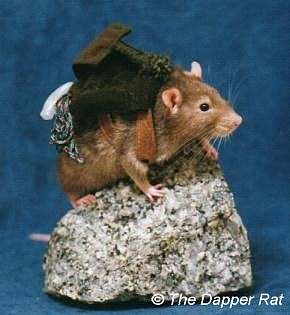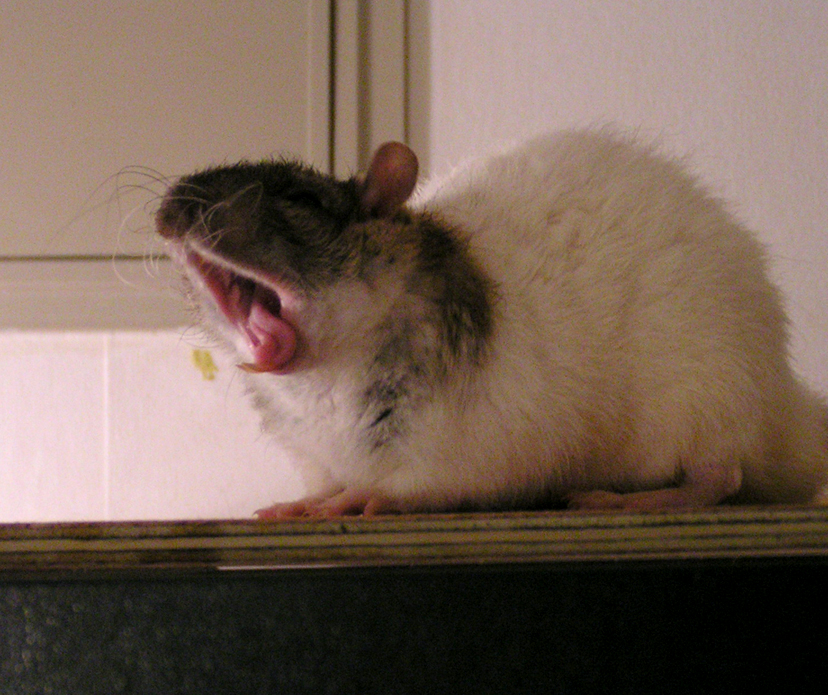Ratty facts
- Average life span of 2-3 years.
- Length: body 9-11 inches; tail 7-9 inches.
- Nocturnal, so will be most active at night.
- weight -males: 300-580 grams females: 190-350 grams
- body temperature :37.5-38.5 degrees
- breathing rate: 85 - 110 per minute
- Heart rate: 300-500 per minute
- ambient temperature:15-21 max. 25 degrees
- humidity in %: 45-55%
- water intake per day: 20-30ml
- Food intake per day: 10-15 grams
- Males are called bucks, females are does, and babies are pups or kittens.
- Rats are social so do best if kept with another rat (or group of rats).
- Rats reach puberty very young - at 6-8 weeks of age.
- Females go into heat every 4-5 days (for about 24 hours) and may seem agitated or restless during this time.
- They are extremly clean, despite their dirty reputation
- A group of rats is called a meischeif

Rat tips
-
rats are group animals and need to be kept with other rats
-
take rotting food out of the cage to avoid disease
-
take the time to visit a rat or animal show
-
rats always need fresh water to be avaliable
-
never buy an animal too young
-
never give veg in large quantities - especially lettuce or cabbage
-
give rats a chance to climb, clamber and play
-
avoid in-breeding
-
watch out for insecticides and if in doubt wash fruit and veg thoroughly
-
never buy a rat just to annoy others
-
Draughts, damp, incorrect feeding, cramped quarters and too many animals in too small a cage can all threaten a rats health
-
feed your rat a special RAT food - rabbit or other rodent food isn't good enough
-
use heavy bowls so they don't get tipped over
-
isolate a patient with an infectious disease
-
if you breed you must find good homes for all your young rats
-
never release a rat into the wild - it won't survive
-
never transport a rat in a cardboard box
